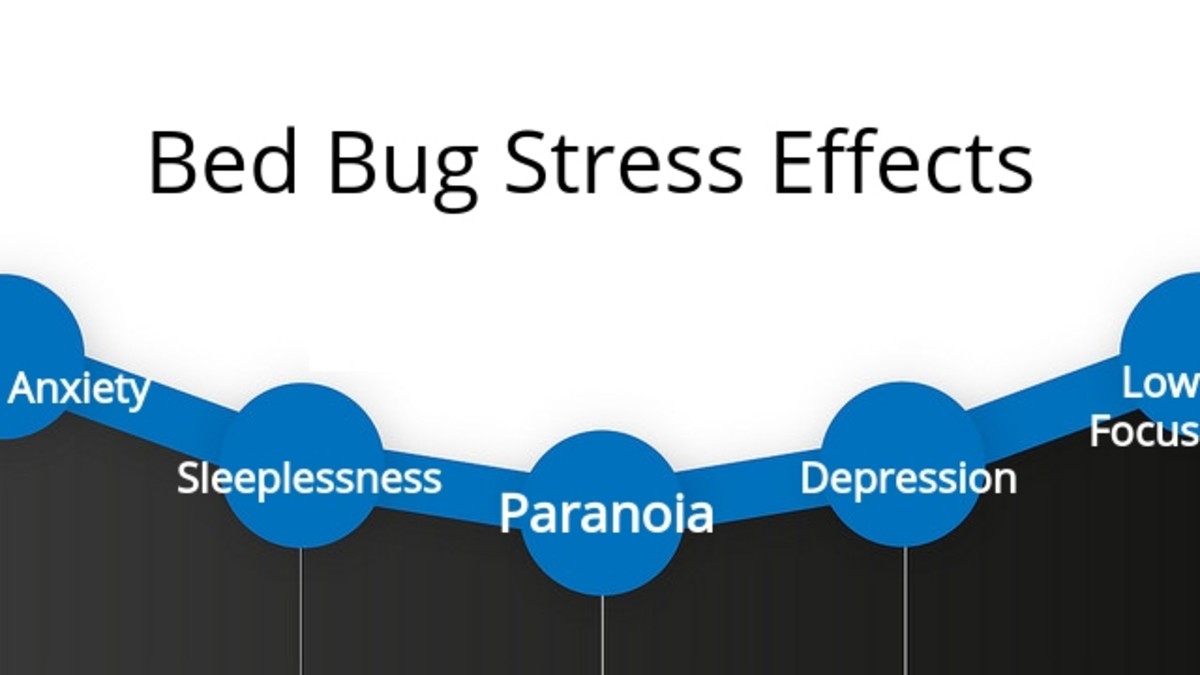How to Help Kids Deal with Stress and Anxiety

Stress is an important dragon to slay - or at least tame - in your life. ~Marilu Henner
Its not stress that kills us, it is our reaction to it. ~ Hans Selye
What is stress?
Stress something we all have to deal with for the length of our days on this earth. Although the stressors in our lives may change, the effects of these stressors on our physical and mental well-being is detrimental no matter what age we are when we experience it.
Although stress can be classified as good or bad, even too much good stress can be detrimental to our physical and mental health especially if it extends over a long period of time.
The pressures that kids face in today’s society are greater than any previous generations have had to face. Because of this, it is more important than ever to help kids learn how to deal with stress in healthy ways. And the things that cause us stress are as different as each person is different, so the stress management techniques developed will also be unique to each person. Although many things work for most people, there is no cookie-cutter answer in helping kids deal with stress.
kidshealth.org defines stress as, “… a feeling that's created when we react to particular events. It's the body's way of rising to a challenge and preparing to meet a tough situation with focus, strength, stamina, and heightened alertness.”
Biology of Belief by Bruce Lipton
All of these things – focus, strength, stamina and heightened alertness – require energy. If this increased need for energy extends for a prolonged period of time, your energy reserves become depleted and the detrimental effects of stress begin to take hold.
In his best-selling book, The Biology of Belief, Bruce Lipton, Ph.D states, “"Almost every major illness that people acquire has been linked to chronic stress." That is a powerful statement; and a statement that stresses how very important it is to help our kids learn to deal with stress.
By learning stress management techniques early in life, they will have the tools necessary to deal with stress throughout their entire lives. I cannot think of a better gift a parent could give their child than this.

Is Your Child Under Too Much Stress?
Stress is extremely toxic and has a tremendous impact on our health. By teaching our kids how to manage stress in their lives, we are empowering them to have more control of their lives and the outcome of their lives, and amazingly their health also.
You can bet that your kids are under various types of stress. Here is a stress test for your child to take to see just how much!
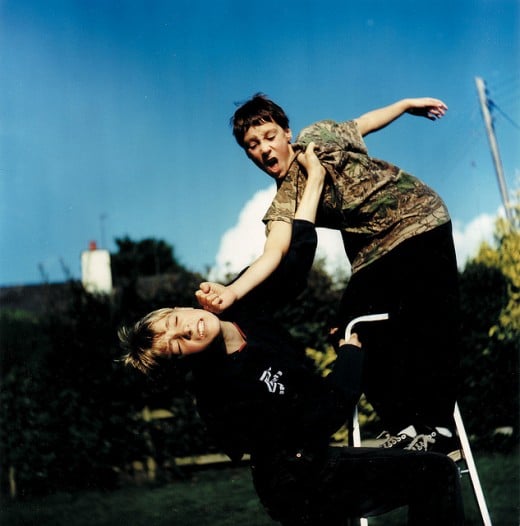
Examples of Things Causing Stress in the Lives of our Children:
- Feeling like they are being picked on or bullied
- Not feeling like they fit in; feeling like an outcast; being accepted; fear being different
- Feeling pressured to do things they don’t want to; trying to fit in
- Feeling like other kids are talking about them all the time
- Moving to a new location or school; loss of friends; having to make new friends
- Feeling like their parents do not listen to them or care what they have to say
- Their parents always complaining about how busy they are
- Parents being separated or divorced
- Excessive fighting going on in the home
- Hearing parents always complain about difficulties with finances; finances keep child from doing things that other kids are doing
- Recent death of close relative or friend
- Some in the family unit is very ill
- Being a latch-key kid
- Recent marriage has brought stepparent/step-brother/step-sister into family unit
- Living in an unsafe neighborhood
- Feeling unsafe at school
- Feeling unsafe at home
- Feeling pressure to get good grades

- Feeling pressure to be a good athlete; fear of being chosen last for a team
- Dealing with excessive homework or difficulties with homework; no free time
- Being very self-conscious; adolescent changes in body taking place
- Feeling anxiety about things going on in their life or their families’ lives
- Thinking or feeling people are disappointed in them
- A parent being called away to war
- New baby in the family
- Embarrassed by family members such as an alcoholic parent
- Not getting along with their teacher
- Peer pressure to do things they know are wrong
- Basic needs are not being met
Looking at several of the above stressors and consider this: children are very adept at picking up on the stress of those around them. Not only that, they tend to internalize that stress; and if they do not understand the source of their stresses, they will frequently blame themselves. This is especially true of children in families who are going through separation and divorce, and subsequent remarriages.
Still don't know what is causing stress in your child's life. Check out, Helping Your Child Discover What is Causing Stress in their Lives, for more answers.
Stress Management for Kids
It is critical that kids know they do not have to be victims. They need to know that they do not have to be helpless in dealing with what their home life, their school, and their peers dish out to them. They must be taught skills to deal with the problems they are experiencing in their lives, and the stresses that go with this set of problems.
In a poll taken among kids, when dealing with trouble in their lives, 75% of them stated they wanted and needed their parents’ help. The kids polled actually wanted their parents to discuss the issues that were troubling them to help them find a solution to the problem, to help them cheer up, or just to spend quality time with them.
The components of anxiety, stress, fear, and anger do not exist independently of you in the world. They simply do not exist in the physical world, even though we talk about them as if they do. ~Wayne Dyer
There is No Escaping Stress!
Unfortunately stress is a part of everyone’s life. There is no escaping it! Because of this fact, it’s essential for your child to learn how to manage stress. Stress generally will not go away and it cannot be avoided – it must be dealt with, effectively and often creatively.
There is no denying it – we are all unique. Each of us handle things differently, and our children are no different. Because of this, finding what works with each child may require some experimentation on your part and theirs. But whatever technique is chosen, they need to eventually learn they have the power to control the stress in their lives. They need to be given and taught the tools necessary to deal with stress. Once they have mastered this at a young age, they will be able to deal with stress for the rest of their lives. As their stressors grow, so will their skills.
It is important to remember, they are unique. What works for you may or may not work for them. Help them to discover what does work for them. Encourage them to do things they enjoy and love as these things will generally help them to relax.
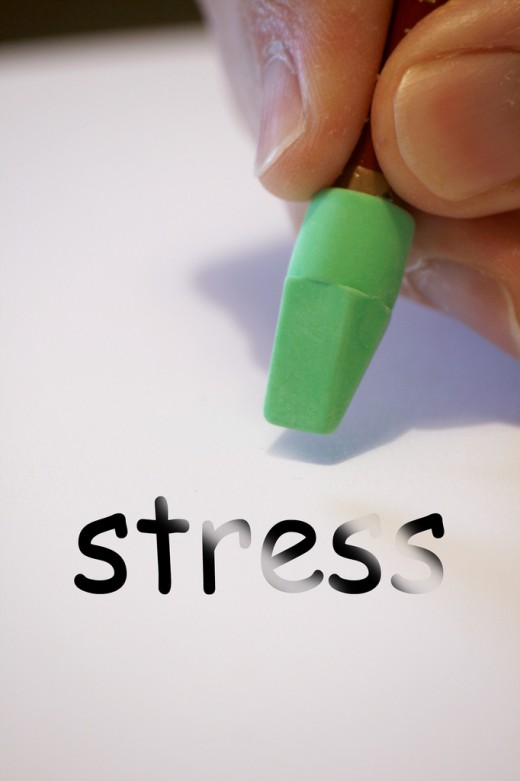
What Kids Can Do to Prevent or Relieve Stress
Remember, each child is unique. By taking cues from the things that they enjoy doing, you can help them find things that will help to alleviate stress. Below is a list of possibilities.
- Talk to a family member or a friend; make yourself available to your child to talk, but never force them to talk
- Do something fun that they enjoy
- Encourage them and remind them to make time to chill out and relax
- Do something physical, like taking a walk, going swimming, going for a bike ride or enjoying a vigorous sporting activity
- Encourage them to journal their feelings
- Help them to do volunteer activities that help others
- Encourage them to be creative: painting, drawing, writing poetry, etc.
- Encourage them to do activities that make them feel good about themselves
- Encourage them to do activities that provides pleasure, satisfaction and fulfillment to them
- If a child’s frustration often leads to anger, consider providing a punching bag
- Blow bubbles with your child. Blowing bubbles is both fun and relaxing. Adults and children alike are mesmerized by bubbles floating through the air.
As your child learns what coping skills and stress management skills work for them, encourage them to utilize these tools often, even as a preventative measure, like a pressure relief valve. Help them realize these changes need to be integrated into their lives so the skills become a part of who they are. Allow them to make the changes slowly so as not to overwhelm them and set themselves up for failure, causing even more stress.
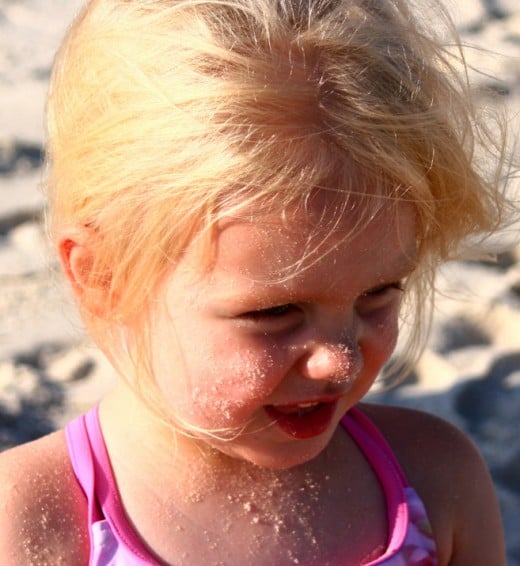
What Can You Do Specifically to Help Your Child Deal with Stress or Even Eliminate Their Stress?
As a parent, if you are under stress, your child does not need to have that stress added to the stresses they are already dealing with. Although it is always important to have an open line of communication with your child, and it is okay to admit that you are feeling stressed, the child does not need to know your stressors intimately and feel that they need to adopt them as their own. If you feel you need some personal time to relax or to compose yourself, there is nothing wrong with taking this time, especially during times of intense stress and challenge.
You must realize also that just as you have lots of stress in your life trying to be perfect, to own the latest gadgets, and to be everything to everyone, your child has many demands made on them to make good grades, to get along with everyone, and be successful in everything they attempt. We are all running ourselves ragged, adding stress to our lives and the lives of everyone around us.
To help your child learn to deal with stress, one of the best things you can do is be a good example for them to mimic. Decide what is really important for you and your family, and then stick with it. Learn to say no to everything that is unimportant to you or your family.
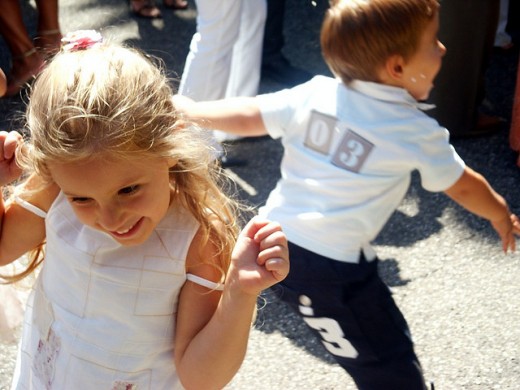
This change in your life will cause others to question your decision. They might start exerting pressure on you and attempt to make you feel guilty over the choices you have made. Be prepared to stand your ground and be a good example for your child. If an activity causes stress for you, your child, or your family, it may be an activity that is not right for your family. Be a good example for child to follow by learning to say NO! What an amazing example to provide for your child – saying no to your peers who are trying to get you to go against what you know to be right!
Use touch to help relieve your child’s stress. One way to do this is to give your child a back or shoulder rub or massage. A back or shoulder rub can help your child to relax. Another form of touch that works well as a stress reliever is hugs. Touching is also a powerful way to let your child know you love and care about them.
Just as stress is something that everyone has in their life, making mistakes in life is totally unavoidable. We need to let our children know that everyone makes mistakes. Mistakes help us learn more about things in our lives. Mistakes are actually very essential to being successful.
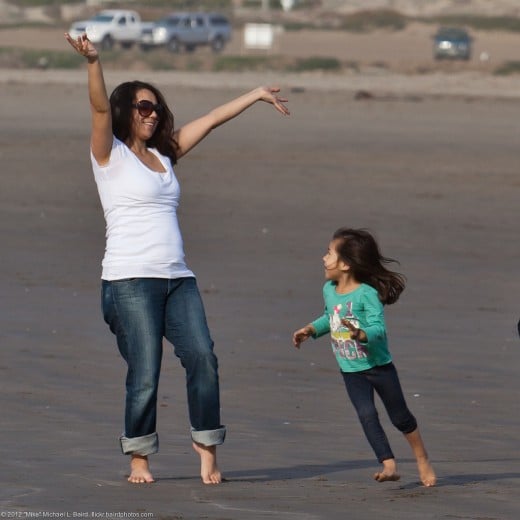
Stress Management for Kids Resources
Teach your child by words and actions how to eat in a healthy manner. This will help them to avoid and deal with stress in a positive way. A healthy body is better equipped to deal with stress.
Teach your child relaxation skills. Teach them how they can relax by imagining (or reliving) a pleasant experience such as a happy moment in their life, or being on vacation and doing something they really enjoyed doing.
Instruct you child in the use of breathing exercises. Deep breathing will help them to pause, relax and refocus. This will help them to deal with their stresses and approach their problems with a clearer head.
Teach your child to enjoy music and to use it to relax. Instruct them in the types of music that can provide relaxation for them. You can also sing and dance with them allowing both of you to have fun together and to blow off steam. Play soothing music in your home during the day to provide a peaceful and relaxing environment.
Train your child methods for handling difficult people and situations. This can best be done by role playing the different situations with your child and modeling how best to handle the situation.
Become a storyteller. For younger children, make up stories that demonstrate how the stories’ characters deal with various stressful situations. You can also share stories about how you felt when you found yourself in a similar situation and what you did to cope. Find a library book that shows a child successfully dealing with a stressful situation.
Be very clear about what you expect from your child. This means that they understand the rules that you expect them to follow and they know what the consequences are for choosing not to follow these rules. Be consistent in enforcing the rules. Work together with them to decide on the consequences for breaking the rules. And always follow through!
One of the best thinks you can do for your child is to let them know that they are loved - that you value them.
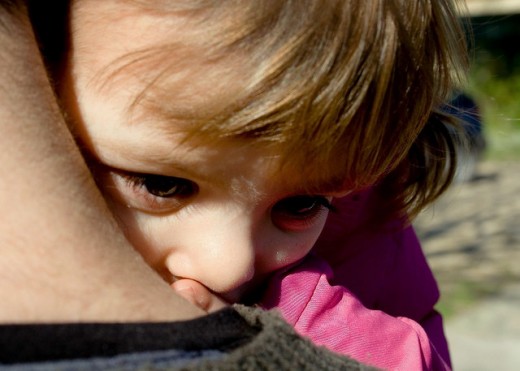
Symptoms of Stress
Let’s look at the different ways that stress manifests itself in children. The following contains basic guidelines, but again we must remember our children are unique and the ways they respond to stress will be unique. No one child will display all of the following symptoms, but your child will generally exhibit several.

Physical Evidence of Stress
- Frequent stomach aches; vomiting
- Frequent headaches
- Trouble sleeping
- Nightmares
- Wetting, and not just at night
- Hives
Emotional Evidence of Stress:
- Fear
- Frustration
- Irritability
- Sadness
Behavioral Evidence of Stress:
- Crying
- Fingernail biting
- Nervous tics
- Losing temper
- Withdrawing from people, places or things; extreme shyness
- Teasing others or being a bully; fighting
- Easily distracted; hard time concentrating
- Temper tantrums
Research has shown that under highly stressful situations, boys tend to be aggressive and disruptive, while girls tend to become depressed or anxious. However these behaviors are certainly not set in stone. A boy could become depressed or fearful and a girl could be destructive or aggressive.

Stress and the Child Who Internalizes
If your child is one who holds stress in, they will work really hard to be a people pleaser. They work very hard at being the perfect child. They strive to be good, work really hard in school, and they make very few demands on the adults in their lives.
This child is often anxious, fearful, and shy, and is a worrier. They will often have a very low sense of self-worth. They may cry easily and often, and have frequent stomach aches, headaches or other illnesses.
Stress and the Child Who Acts Out
A child who acts out because of stress may be prone to losing their temper, may become destructive or very demanding, or may act out by teasing and bullying other children.

Things that Act in Favor of a Child Dealing With Stress
Researchers have identified certain characteristics that determine how well a child will deal with the stresses in their life. The more of these things you can provide for your child, the more successful in bouncing back from stress your child will be.
- Having a loving and caring relationship with an adult
- Having a belief in themselves
- Feeling that they are able to provide value (assistance) to the family unit
- Having a belief that they are worthwhile and lovable
- Having positive connections to adults outside the immediate family unit
- Having successful problem solving skills
- Having a belief in their own ability to make things better for themselves
- Having spiritual resources
- Having the ability to play with and care for pets

Thoughts on Stress Management
Whatever stress measures that your child adopts, these measures need to lead to a cheerful personality – your child’s personality. The changes need to be right for your child and who they are. You will not always be there to help your child, so the skills your child learns needs to be theirs and they need to feel comfortable with them; otherwise, they may not use them.
Being in control of your life and having realistic expectations about your day-to-day challenges are the keys to stress management, which is perhaps the most important ingredient to living a happy, healthy and rewarding life. ~ Marilu Henner
Model Stress Management Techniques
What is the number one thing you can do to help your child learn to manage the stress in their lives? Be a great role model for your child. By modeling to your child how you handle stress in your life, they can observe for themselves the benefits of the stress management techniques you are trying to teach to them.
If your child sees you using conflict resolution to deal with your problems with others, or if they see you taking time to relax and care for yourself, then they are more likely to do the same things. Lead by example in this regard and soon you and your child will both be winners!
In Closing . . .
Whether your child is dealing with the normal day-to-day stress that we all find in our lives, or something out of the ordinary, by applying the techniques discussed, you will be helping them deal with stress in their lives now and in the future. Additionally you want to help your child learn to deal with problems in ways that will not cause additional problems and stress in their lives, and in the lives of others.
Since we all have to deal with stress, and we cannot escape it, the methods that we use to cope with it or eliminate it are the things that will make or break us in the long run. By providing them with the tools to deal with their stress, you are raising children who mature into happy, healthy adults.




